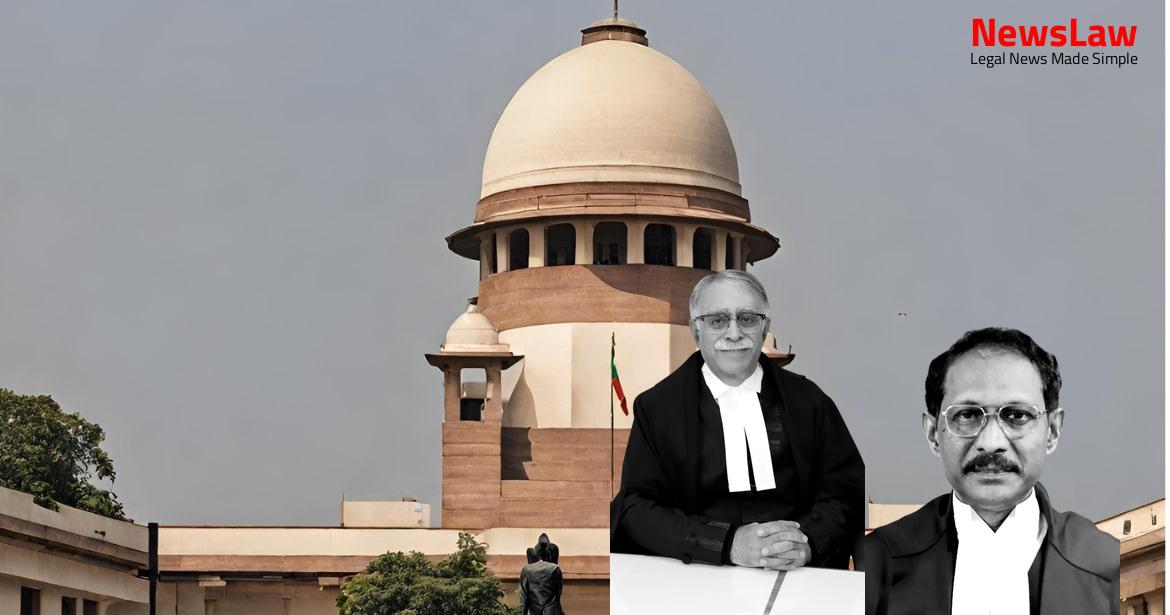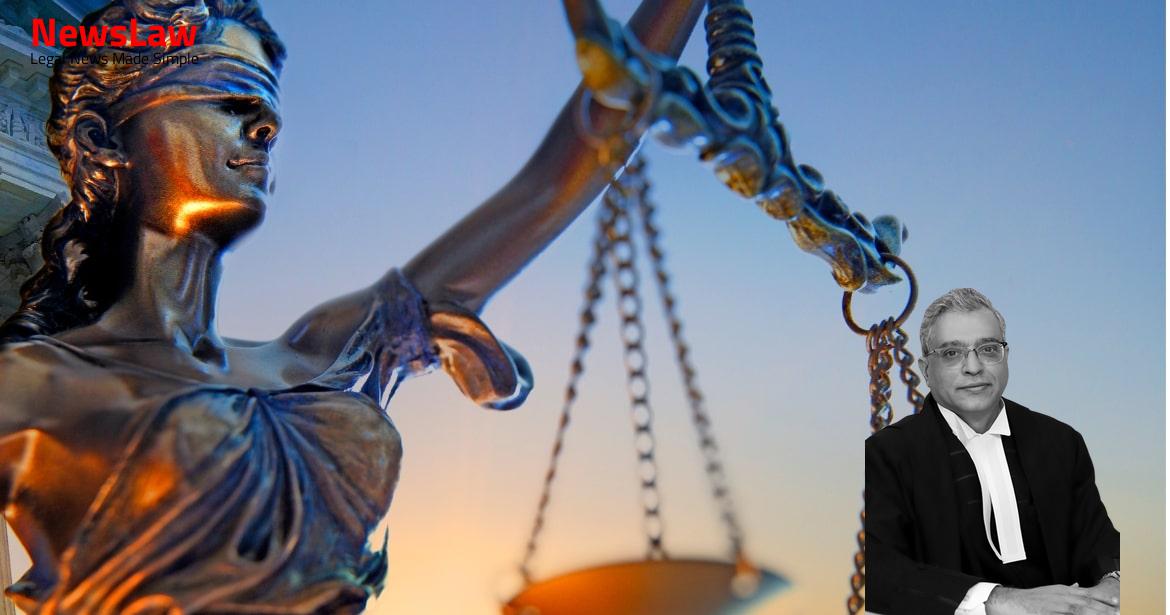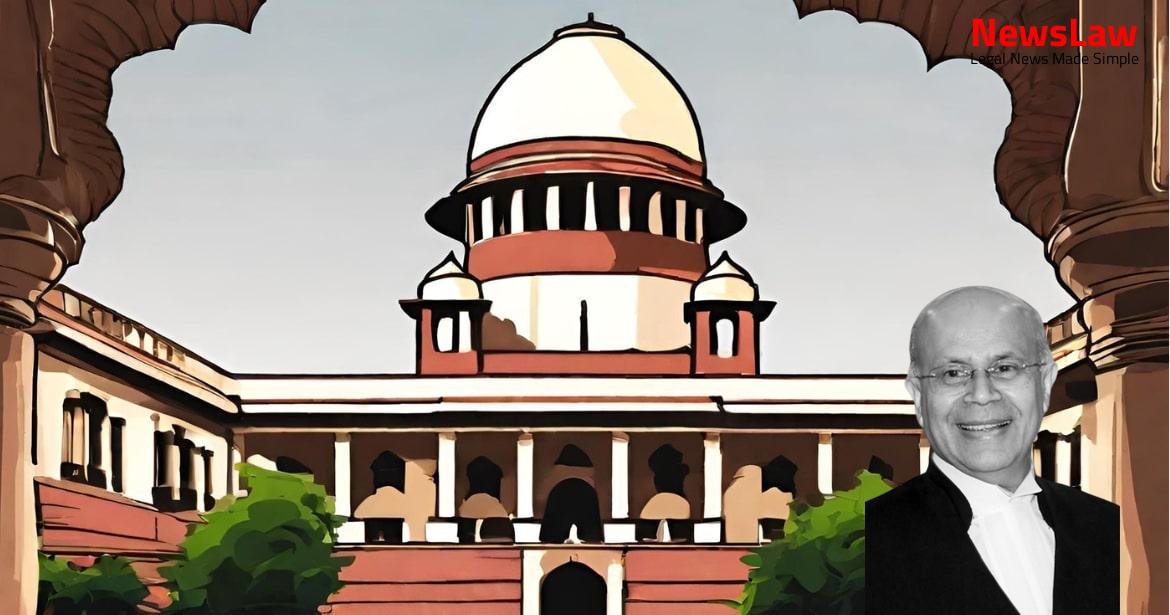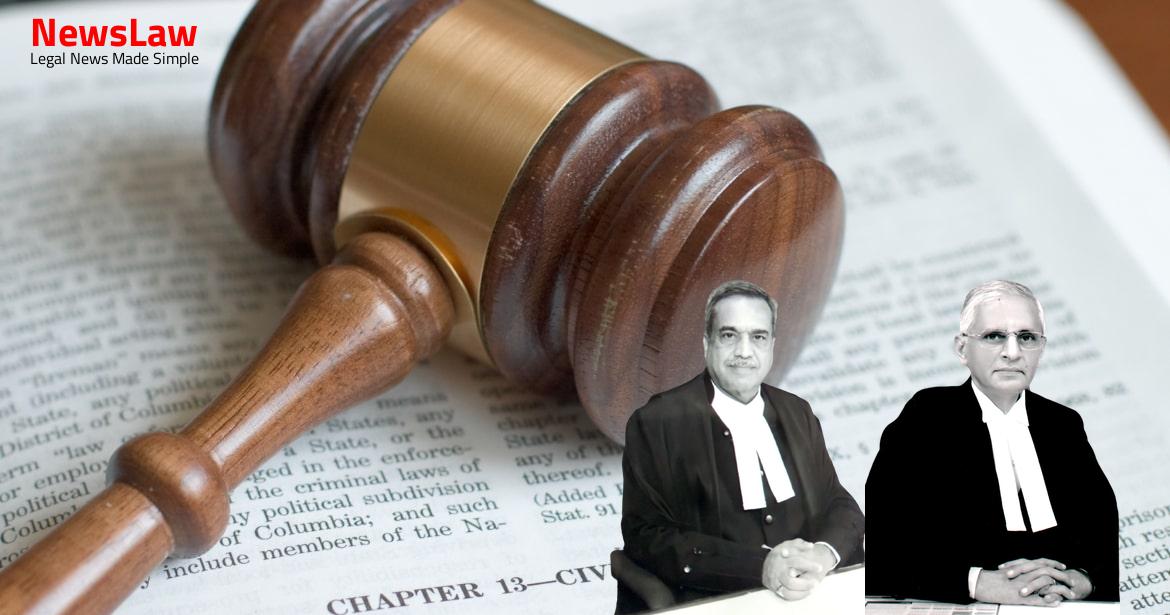In a landmark ruling, the Supreme Court of India addressed the Sanction Order Compliance Case involving Fuleshwar Gope and the State of India. The case revolved around the compliance with sanction orders issued under the UAPA and their timing. Stay tuned to learn more about the implications of this significant legal judgement.
Facts
- The appellant, Fuleshwar Gope, is associated with the People’s Liberation Front of India and is believed to have conspired with members of the PLFI.
- He is alleged to have formed a company with one of the members of PLFI, which was used to collect funds for the activities of PLFI.
- The High Court was presented with arguments stating that certain sections of the National Investigation Agency Act, 2008 and the UAPA were not complied with during the investigation.
- Special Judge NIA took cognizance of the case on 5 November, 2019, and the appellant was later arrested on 13 July, 2020.
- The approach of the learned Special Judge in dealing with the material presented was deemed satisfactory and required no interference.
- The judgment in Bhushan Kumar & Anr. v. State (NCT of Delhi) and State of Gujarat v. Afroz Mohammed Hasanfatta was considered while examining the power of the Magistrate at the stage of issuing process or summons.
Also Read: Legal Victory for M/s. Baijnath Choubey & Co.: Landmark Judgment by Supreme Court of India
Issue
- The High Court considered three specific issues in this case.
- The first issue was whether the Central Government has the power to hand over the investigation to the NIA after completion by the District Police. The Court relied on a previous case, Pradeep Ram v. State of Jharkhand & Anr, to establish that the NIA has the jurisdiction to conduct further investigations.
- The second issue focused on the legality of the sanction order issued by the Under Secretary to the Government of India on 22.07.2020. The Court examined the compliance with Rule 3 of the Unlawful Activities (Prevention) (Recommendation & Sanction of Prosecution) Rules, 2008 and found that the timeline stipulated in the rule was strictly followed.
- The third issue questioned whether the cognizance order was made without proper application of mind. The Court deliberated on this and did not find any infirmity in the order.
- Overall, the Court addressed each issue meticulously and provided reasoning for its conclusions.
Also Read: Landmark Judgement on Woman’s Property Rights: Stridhan Case Summary
Arguments
- The impugned sanction was issued nearly 3 years after the incident and 2.5 years after a relevant letter, violating the statutory mandate.
- Clause (2) of Section 45 of the UAPA was breached due to the lack of ‘independent review’ during the sanction process.
- The appellants argue that the sanction orders were generic and not individually assessed, as required by Section 45.
- The appellants claim that the sanction order lacked reasoning or evidence of proper consideration, contending a mechanical approval process.
- Section 45 of the UAPA, in conjunction with Rules 3 and 4 of the 2008 Rules, mandates a specific procedure and timeline for granting sanctions.
- The appellant, a Munshi working as a daily wager, has been incorrectly roped into the proceedings
- He is illiterate and does not understand business transactions
- He was made an accused in an independent transaction involving A-20
- The exemption under the proviso to Section 22A exempts a person not in charge of the company from prosecution
- A-6 took advantage of the situation once A-7 and A-14 stole the appellant’s identity
- The appellant was not made an accused in the first module (FIR No.67/2016) or in the second module involving an alleged hawala transaction
- Sanction for the second module was granted by the Central Government on 16 October, 2019
Also Read: False Affidavit Allegations: Upholding Justice in the High Court of Uttarakhand
Analysis
- The contestation regarding the validity of the sanction order at any stage can be raised but ideally should be challenged at the earliest possible juncture before the Trial Court.
- The timelines mentioned in Rules 3 & 4 of the 2008 Rules, stipulating a week’s time for recommendation and sanction, are pivotal but not strictly mandatory, especially in serious cases under UAPA.
- The need for an independent review for the application of mind by both recommending and granting authorities is essential for compliance with Section 45 of the UAPA.
- The authority must consider all materials before sanctioning, thus making it non-faulty unless a fair opportunity to defend is compromised, resulting in miscarriage of justice.
- It is crucial that the criteria for joinder of charges, withdrawal of remaining charges, and plurality of persons under Sections 218-224 of CrPC are met for a legitimate trial.
- The ‘independent review’ is a standalone assessment that must not depend on external factors or influences, ensuring the credibility and impartiality of the sanctioning process.
- Strict adherence to statutory timelines, despite the use of ‘shall’, should not stifle due process but rather ensure expeditious resolution, aligning with the UAPA’s legislative intent.
- The essence of ‘independent review’ lies in a thorough reexamination, scrutiny, and critique, detached from external control or dependency, contributing to the sanctity of the sanctioning process.
- The expression ‘same transaction’ as used in the relevant sections of the statute should be understood uniformly in its application.
- The determination of whether multiple persons accused of several separate offenses can be tried jointly depends on the connection between the offenses, to avoid causing embarrassment or difficulties to the accused in their defense.
- Sanction orders must reflect a proper application of mind by the sanctioning authority after considering all relevant material.
- The timelines prescribed for recommendation and granting of sanction under the 2008 Rules should be followed strictly, as they are essential for the expeditious resolution of cases.
- Challenges to the validity of sanction orders should be raised at the earliest stage of proceedings, ensuring that no undue delay is caused in the legal process.
- Grant of sanction must be treated as a significant and vital step in protecting public servants from frivolous litigation, and it should not be viewed or treated lightly.
- Compliance with the established rules and procedures for sanction under the UAPA is fundamental to upholding the rule of law and ensuring fair treatment of accused individuals.
- Section 141 of the UAPA holds persons criminally liable if they were in charge of the company at the time the offense was committed.
- Section 221 allows multiple offenses from the same transaction to be charged and tried together.
- The UAPA defines key terms like ‘Designated Authority’, ‘person’, ‘prescribed’, and ‘proceeds of terrorism’.
- Section 219 allows for the joinder of charges of three offenses of the same kind committed within a year.
- Only those in charge of and responsible for the conduct of the business at the time of the offense will be liable.
- Section 222A outlines liability for offenses by companies and their key personnel.
- Rules under the UAPA prescribe time limits and procedures for recommendations and sanctions for prosecution.
- The position of law with respect to Section 223 is as decided in the Paras Nath Singh case.
- The Court defers the decision on whether the exemption under Section 22A applies to the Trial Court if raised as an issue.
- To claim exemption under Section 22A, the person must provide evidence showing they were not in charge of the company or made reasonable efforts to prevent the offence.
Decision
- Trial Court should consider the matter, not the current Court
- The trial is underway and has proceeded substantially
- The appeal is dismissed as it lacks merit
- All pending applications shall be disposed of
Case Title: FULESHWAR GOPE Vs. UNION OF INDIA (2024 INSC 718)
Case Number: Crl.A. No.-003923-003923 – 2024



